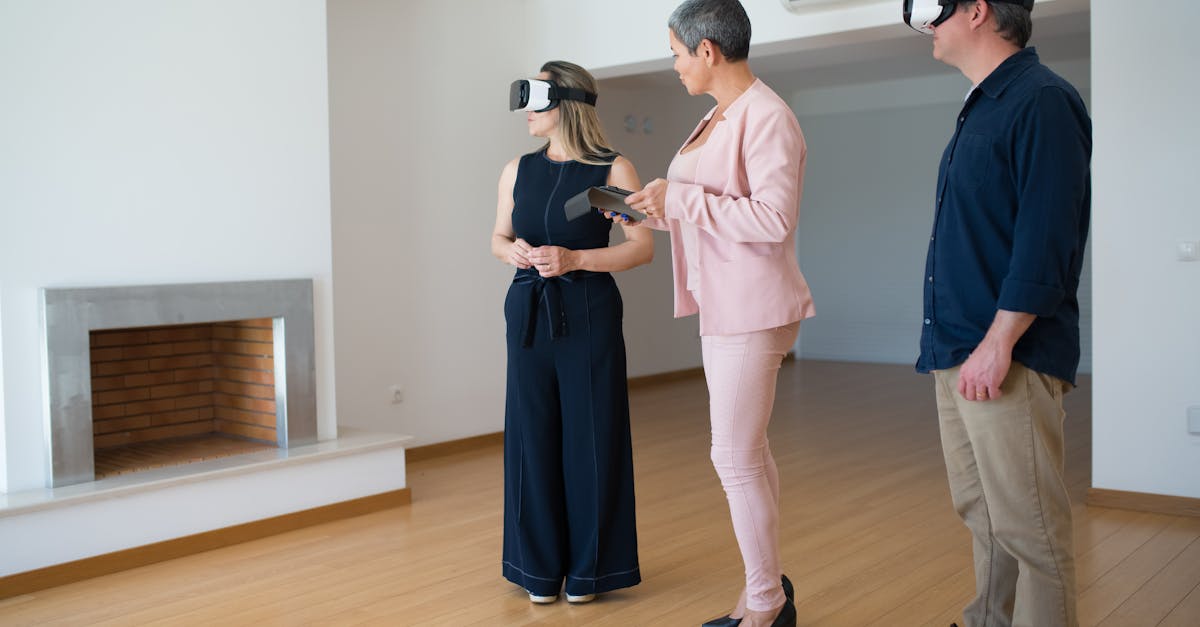The Future of Real Estate with Virtual Tours and AI
Introduction to Virtual Tours and AI in Real Estate
The real estate industry is undergoing a transformative phase, driven by technological advancements like virtual tours and artificial intelligence (AI). These technologies are revolutionizing the way properties are showcased and sold, offering prospective buyers immersive and interactive experiences. As more people rely on digital platforms for their house-hunting needs, real estate professionals are adapting to integrate these cutting-edge tools. By doing so, they are not only meeting modern consumer demands but also streamlining the buying process. This article delves into how virtual tours and AI are reshaping the future of real estate. We'll explore the benefits, challenges, and potential trends that lie ahead in this exciting evolution.
Advertisement
Enhanced Property Viewing Experiences
Virtual tours provide a dynamic viewing experience that traditional photo listings simply cannot match. Potential buyers can explore properties from the comfort of their homes, navigating through rooms in three-dimensional spaces. This interactive option allows them to visualize living spaces and interior designs more effectively than static images. Real estate agents benefit too, as virtual tours reduce the need for time-consuming on-site visits. By offering around-the-clock access, these technologies broaden the market reach, engaging international buyers and anyone unable to visit in person. The immersive nature of virtual tours caters to consumer preferences for convenience and visual detail.

Kampus Production/Pexels
Advertisement
AI-Powered Personalization and Insights
Artificial intelligence is making waves in real estate by offering personalized user experiences and valuable data insights. AI algorithms analyze user behavior, preferences, and previous interactions to provide tailored property suggestions. This technology can predict which properties are of high interest, significantly boosting potential sales conversions. Additionally, AI tools can assess market trends, forecast property values, and provide valuable insights for both buyers and sellers. By harnessing the power of AI, real estate agencies enhance their business strategies and customer service, making every transaction more efficient and effective.
Advertisement
Streamlining Transactions with AI Automation
AI plays a pivotal role in streamlining real estate transactions, from initial inquiries to closing deals. Chatbots powered by AI offer instant customer service, addressing queries without human intervention and saving valuable time for agents. Automated processes in loan approvals and document verifications eliminate potential roadblocks, speeding up traditionally lengthy procedures. AI-driven platforms empower buyers with transparent and secure workflows, instilling confidence in their purchasing decisions. The incorporation of AI in these areas not only optimizes operations but also minimizes human errors, resulting in smoother transactions.
Advertisement
Virtual Tours Boosting Marketing Strategies
Incorporating virtual tours into real estate marketing strategies enhances overall brand visibility and engagement. These tours can be shared across various digital platforms, including social media, realty websites, and mobile apps. They serve as compelling marketing assets, attracting tech-savvy audiences and differentiating listings from the competition. By offering unique and immersive explorations of spaces, realtors can create a stronger emotional connection with potential buyers. Companies leveraging this technology have found themselves at the forefront of digital marketing, resonating with consumers seeking an innovative approach to property discovery.
Advertisement
Challenges Facing Virtual Tours and AI Integration
Despite their advantages, integrating virtual tours and AI into real estate comes with challenges. The initial investment in these technologies is often expensive, especially for smaller agencies. Ensuring the software is current and visually appealing requires continuous updates and maintenance. Additionally, not all potential buyers are tech-savvy or comfortable with digital interactions, presenting a hurdle in adoption rates. Privacy concerns surrounding data used by AI systems also remain an issue to address. Overcoming these challenges demands proactive adaptability and a clear understanding of client needs.
Advertisement
Emerging Trends in the Real Estate Market
The future of real estate is ripe with exciting trends, driven by virtual tours and AI innovations. Augmented reality (AR) is emerging as a companion technology, allowing users to virtually furnish homes and visualize renovations in real-time. Blockchain is being explored for secure and transparent property transactions. AI's role in predictive analytics continues to expand, offering sharper insights into market dynamics. As these technologies evolve, the focus will shift towards creating seamless and fully integrated virtual shopping experiences. These advancements hint at a future where digital transformation is deeply intertwined with real estate.
Advertisement
Virtual Tours and AI in Global Markets
Virtual tours and AI are not confined to a single market; they present global opportunities for real estate expansion. International buyers and investors benefit from virtual tours, gaining insights into properties they might otherwise overlook due to geographical restrictions. Tech-savvy regions witness rapid adoption of these technologies, further accelerating digital transformation. Meanwhile, emerging markets are beginning to harness these tools, recognizing their potential to revolutionize traditional property dealings. This global adaptability emphasizes the versatile nature of virtual tours and AI in meeting diverse market needs.
Advertisement
The Role of AI in Sustainable Real Estate
AI is also charting a course towards environmentally friendly real estate solutions. Sustainable architecture and energy-efficient systems can be optimized using AI analysis to ensure maximum eco-efficiency. By integrating AI-powered smart home technologies, properties can reduce energy consumption, contributing to a smaller carbon footprint. In turn, this focus on sustainability enhances marketability, appealing to environmentally conscious buyers. As real estate investments increasingly prioritize eco-friendly practices, AI will be crucial in facilitating and enhancing these efforts.
Advertisement
Conclusion: Embracing a Tech-Driven Future
The real estate industry's future is undoubtedly intertwined with virtual tours and AI advancements. As these technologies continue to evolve, they will redefine property viewing experiences, streamline transactions, and provide deeper market insights. While challenges exist, the potential benefits far outweigh the hurdles, promising a more dynamic and engaging real estate environment. By embracing these innovations, the industry is set to meet the expectations of modern consumers, creating more accessible and efficient buying processes. Those with a keen eye on the horizon will find themselves leading the charge in this technological renaissance.
Advertisement


